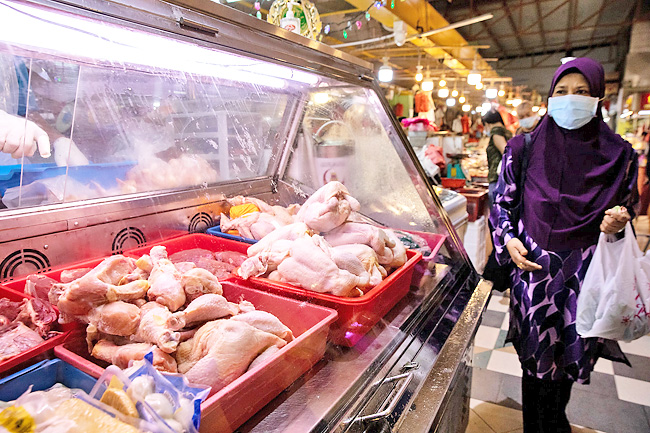CNA – Indonesia’s overwhelmingly large supply of chickens for domestic consumption meant that it would be difficult for its poultry industry to step up production to replace Malaysia’s external supply of chickens.
Chairman of Indonesia’s National People’s Farmers Association (PPRN), Alvino Warjiantono told CNA that it would be hard for Indonesian farmers to increase production as the country’s export of chickens was small.
Malaysia is set to curb the export of up to 3.6 million chickens a month from June 1, as among other measures to address the domestic supply shortage.
The move has caused prices of chicken to balloon in countries reliant on supplies from Malaysia as importers scramble to look for an alternative.
“Our export is very small because (Indonesian breeders) haven’t been able to keep prices competitive,” said Warjiantono.
According to the Indonesian Ministry of Agriculture, the country produces 3.4 million tonnes of chicken meat each year, 500 tonnes or 15 per cent of it, are exported to countries like Timor Leste and Papua New Guinea.

Warjiantono said the main issue is the fluctuating prices of chicken feed which keep prices of Indonesian chickens high.
“We rely on imported feed like corn and soybean and prices for these commodities have been high recently due to the global situation,” he said.
“This is why many producers are reluctant to export their chickens because after logistics and tariffs they wouldn’t stand to make a profit.”
Warjiantono said the Indonesian government needs to control the prices of chicken feed and provide other incentives like tax and export tariff breaks should the country wishes to replace Malaysia.
“Without government intervention it is hard for chicken farmers in Indonesia to seize this opportunity,” he said.
A spokesperson for the Indonesian Agriculture Ministry declined to comment on the Malaysian ban but said that they are monitoring it closely.
Malaysian consumers have complained of rising chicken prices amid a supply shortage prompting Kuala Lumpur to abolish approved permit (AP) for importing whole and cut chicken in a bid to increase food supply.
According to statistics on the Federation of Livestock Farmers Associations of Malaysia’s website, Malaysia’s export of live birds has grown from 40.19 million birds in 2007 to 59.08 million in 2020.





